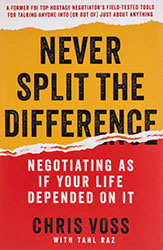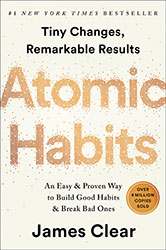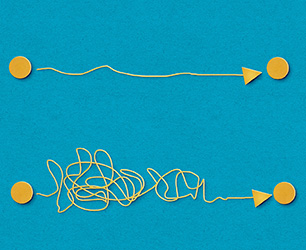Summer Reading List for Leaders
Latest Posts
- 2024 Reading List for Leaders
(posted: 07/01/2024)The right book can be a leadership game-changer.
- Coach's Notebook: Exec Presence for Leaders
(posted: 05/08/2024)As a leader your charisma is critical. Learn how to develop it!
- New Year's Resolutions vs New Chapters
(posted: 02/01/2024)Forget New Year's...Your new chapter can begin when you are ready!
Blog Archives
Kristi posts to her site about once a month, but frequently more often. She also appears as a featured contributer on select other sites. If you would like to be notified when new blogs are posted, please subscribe to our newsletter.
If you are interested in Kristi guest posting to your site feel free to contact us.
Summer Reading List for Leaders
(posted: June 27th, 2022)

[Any links in this post are provided as a courtesy to the reader. The reviews are my own opinions, all of the books were purchased, and I do not receive any kind of compensation if you click on a link!]
This year, I'm sharing just two books (plus one meaty article), because I want to challenge you to read at least one of them!
These are great for leaders, aspiring leaders, and for anyone else who wants to be a better version of themselves.
Leaders: The 2 Books You MUST Read
It's summer, and we're all ready for an escape and some downtime. Spend some of that delicious "you" time on your leadership development and skill building by putting at least one of these books at the top of your summer reading list, along with that trashy "beach read" you've been eyeing.
Never Split the Difference, Chris Voss

First of all, if you've passed on this book before because it's "just" about negotiation please keep reading!
If you've seen Voss, maybe on YouTube, you're probably thinking, "Isn't this just for sales people?"
No!
In fact, it's crammed full of great information for leaders of all levels. I use the lessons and techniques in coaching my executive clients.
Chris Voss is a former FBI hostage negotiator with experience in academia and the private sector. In this book, he draws on his considerable career to provide insight on human behavior and teach readers to become more effective at collaboration, persuasion, and, yes, negotiation.
More Than Negotiation: Active Listening
What Voss expresses is more than getting to "yes" in negotiation. This book is a manual for communication, effective empathy, information gathering, defusing hostility, developing relationships, execution of agreements, and cultivating a reputation as someone worth dealing with.
At it's core, it's all about active listening.
One of the first things Voss says is that everyone wants to be understood and accepted, and the most effective way we get there is to listen. "Listening intensely...demonstrates empathy and shows a sincere desire to better understand what the other...is experiencing. Listening is not a passive activity, it is the most active thing you can do."
Active listening starts with having the right mindset. When you go into a conversation with curiosity and try to understand your counterpart's worldview, it's easier to get where they are coming from.
Next time you find yourself talking to a barista, ask them how they're doing. Whatever their response is, "label" it and watch how much more information they share with you. They will look at you as though you're from another planet-all because you're actually listening. By "labeling it" Voss means rephrase or reflect back, "It sounds like you are having a rough day?"
"One can only be...a great person by both listening and speaking clearly and empathically; by treating counterparts and oneself with dignity and respect; and most of all by being honest about what one wants and what one can and cannot do. ...[E]very conversation, every moment of life is a series of small conflicts that, managed well, can rise to creative beauty. Embrace them."
Practical Application
Each chapter begins with a story from Chris' career. His stories are engaging and provide a practical example for the lessons that follow. Chapters conclude with a brief summary of what's been covered, why it matters, and how it can be implemented. There is a ton of useful information here, so these chapter summaries are vital, letting you easily review what you've learned.
I suggest taking a chapter at a time and practice the ideas and techniques. Practice them on your family, on your colleagues and on your friends.
The ideas here are simple, practical, and highly relevant for leaders.
As a follow up, or for smaller doses of useful information, the Black Swan newsletter shows up in your inbox on Tuesdays.
Atomic Habits, by James Clear

This book is sort of the "missing link" in goal-setting and achievements. There is lots of information out there about setting goals, methods like SMARTer goals, and even about habits. Yet, many of us still find it hard to reach our goals.
James Clear suggests that it's not our will or determination that's the problem, it's our systems. In this supremely practical book, James Clear distills the most fundamental information about habit formation, so you we accomplish more by focusing on less.
"You do not rise the to the level of your goals, you fall to the levels of your systems."
Ask yourself, "Who is the person I want to become, what systems will lead me there?"
Clear's Five Big Ideas are basically the difference between setting goals and building systems.
The Five Big Ideas:
- Habits are the compound interest of self-improvement.
- If you want better results, then forget about setting goals. Focus on your system instead.
- The most effective way to change your habits is to focus not on what you want to achieve, but on who you wish to become.
- The Four Laws of Behavior Change are a simple set of rules we can use to build better habits. They are (1) make it obvious, (2) make it attractive, (3) make it easy, and (4) make it satisfying.
- Environment is the invisible hand that shapes human behavior.
So, in order to accomplish a goal, we need to create habits that build toward that goal. And habits need to be small, incremental changes that are easy to sustain. Shoot for just 1% improvement daily. One of Clear's techniques is to stack or layer habits, so that you trigger one with another. For example, I might have a cup of coffee every day to start my day. I could decide that after I've poured that first cup, I will sit down and journal for 10 minutes. Now when I get my first cup of coffee, I don't have to think. I just do the next thing, which is to write in my journal.
Clear is known for his ability to distill complex topics into simple behaviors that can be easily applied to daily life and work. He explains how to:
- make time for new habits (even when life gets crazy);
- overcome a lack of motivation and willpower;
- design your environment to make success easier;
- get back on track when you fall off course;
- and more.
This book is action oriented. The concepts present an action plan for trying them in your own situation and to practice the ideas directly in day to day life.
Bonus: Listen to Brene Brown's two-part interview with James!
- Brene/James interview part 1
- Brene/James interview part 2
Of particular interest in the second inteview is Brene and James discussing organization habits and how to create habits in a team and in organizations.
Stop Overcomplicating It: The Simple Guidebook to Upping Your Management Game, First Round Review

"We need a simpler leadership approach that measurably and predictably delivers more engaged employees and better business results," says Russ Laraway, author of When They win, You Win.
In this article, First Round Review speaks with Laraway to get an outline of the lessons in the book, from the "Big Three" management frameworks most strongly correlated with employee engagement, to how to measure how well your managers are performing, and how to make sure you're even picking the right leaders to begin with.
Managers often feel lost and alone, yet they are the glue that keeps your employees from leaving. This article will give you some practical suggestions to start improving your management game.
Coaching for Leaders
Like athletes and actors, leaders need coaches to help them take their skills to the next level. Often, we know what we need to do, but we need encouragement and accountability. Or we can see the end goal, but not know how to get there. Sometimes, in spite of our best intentions, we end up getting in the way of our own progress. The books in this article can be great starting points for leadership development, and combined with skillful coaching these techniques can elevate your leadership talents. If you'd like to talk about your leadership goals, drop me a line and let's chat about how coaching could benefit you.
- What is most intriguing to you about Never Split the Difference?
- What is most interesting about Atomic Habits?
- What one or two things would you like to try from either book?
- If you've already read one or both books, what stood out to you?
- Please share your thoughts and additions in the comments below.
Sign Up for our newsletter and never miss another post.
